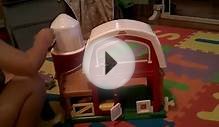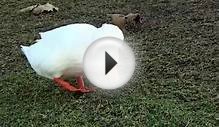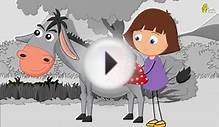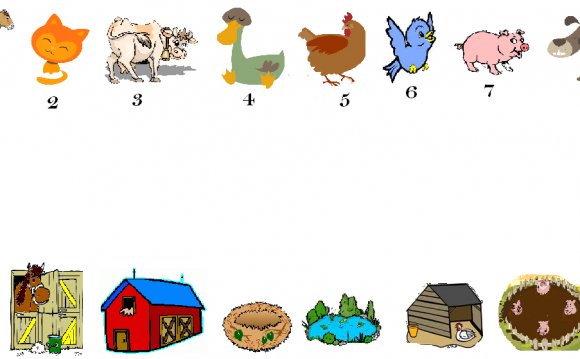
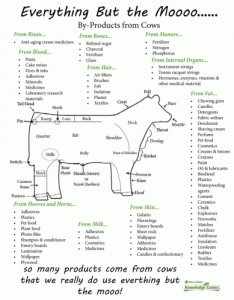 Part 1: Why Do We Raise Animals For Food and Products?
Part 1: Why Do We Raise Animals For Food and Products?
- Why do we use livestock products for human use and consumption?
- Should I feel bad when I eat meat because an animal died to become that meat?
- Why can’t animals be set free to live as long of a life as possible?
Livestock animals (Cattle, Horses, Chickens, Turkeys, Pigs, Sheep, etc.) have been a huge part of human existence since the beginning of our civilization. Humans have used animals for meat, milk, eggs, labor, and clothing for thousands of years. Millions of people around the globe take care of livestock every day! (See video below)
But do we really need animal agriculture? Must innocent animals lose their lives for human benefit? Why can’t we just rely on fruits, veggies, and grains to feed and clothe the masses? Here are 10 reasons why animal agriculture exists and why it is ethical.
1. Animal Products are the Reason Most Livestock Animals are Born
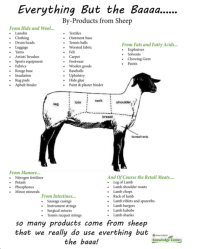 The fact that humans eat and use animal products is the main reason most livestock animals are alive in the first place, even though in certain cases the process theoretically ends their lives as well. If you believe animals like cows, pigs, chickens, or sheep deserve a chance at life, you must believe in the use of animals for humans, because without us, 95% of these animals would never be born in the first place. Farmers help bring these animals into this world and give their lives meaning and purpose as they leave it (food and products). The only question that remains is whether or not the quality of life for these animals is worth them being born in the first place, which will be addressed in the subsequent “animal welfare” blogs found on the home page of our blog.
The fact that humans eat and use animal products is the main reason most livestock animals are alive in the first place, even though in certain cases the process theoretically ends their lives as well. If you believe animals like cows, pigs, chickens, or sheep deserve a chance at life, you must believe in the use of animals for humans, because without us, 95% of these animals would never be born in the first place. Farmers help bring these animals into this world and give their lives meaning and purpose as they leave it (food and products). The only question that remains is whether or not the quality of life for these animals is worth them being born in the first place, which will be addressed in the subsequent “animal welfare” blogs found on the home page of our blog.
2. Livestock Infrastructure Produces Billions of Pounds of Food & Products
Meat, milk, eggs, and thousands of other food products come from animals. Animal products are found in a vast amount of foods consumed today. Furthermore, animal by-products are used extensively in almost every walk of life. While you may be able to avoid eating animal products, it is nearly impossible to avoid using animal by-products. The infrastructure of the livestock industry has allowed for thousands of these products to be made affordably, efficiently, and sustainably.
If we did away with livestock products, we would have to reinvent the infrastructure of our food supply and product supply, which would prove to be extremely costly. Thousands of farmers would have their current farming methods they have developed over centuries taken from them. Technology is what has allowed 1 farmer to feed 155 people today instead of 27 people in 1950. Livestock technology is a huge part of that. If we were to abandon animal agriculture, we would see a drastic decrease in food production and an drastic increase in food prices. This would be taking us in the opposite direction of producing enough food to feed a growing population.
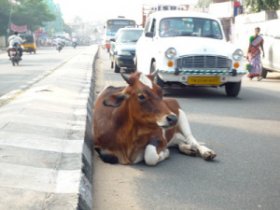 3. Millions of Grassland Acres Would Go to Waste Without Livestock
3. Millions of Grassland Acres Would Go to Waste Without Livestock
Millions of acres of land are not suitable for crop production (due to slope of terrain, soil type, rainfall, etc.) and are therefore grazed by livestock animals. In fact over 13 million square miles are grazed by livestock animals around the world. These animals help maintain the ecosystem of these grass acres and convert the grass into food for humans. If we took those livestock animals away, the millions of acres of grassland would become unproductive instead of providing billions of pounds of food each year. If our goal is to feed 9 billion people by 2050, this would be a huge step backward in reaching that goal.
4. Livestock Animals Roaming “Free” Is Not Plausible
Currently there are over 11 billion birds, 87 million cattle, 67 million pigs, and 5 million sheep used in U.S. livestock production today. Farmers breed these animals, feed these animals, and protect these animals. They are domesticated. If livestock production ceased, the incentive for farmers to spend their lives caring for these animals would be gone. Farmers would no longer be there to take care of these animals, they would no longer be maintaining fences, caring for the sick, protecting them from predators, etc. Animals would either die out, live in the wild, or live in a zoo. In the wild, livestock animals would no longer be producing food, products, and labor for humans, they would become road hazards and would get into yards, gardens, and public places. They would be a nuisance. The reason these domesticated animals have survived over the generations is based on their importance to humans.
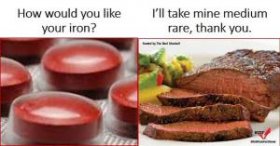 Even if sanctuaries were built for large numbers of animals, only a small percentage of the amount we have today would exist.
Even if sanctuaries were built for large numbers of animals, only a small percentage of the amount we have today would exist.
5. Livestock Produce Vast Amounts of Fertilizer Needed to Grow Plants
Without fertilizer, farmers of all types could not grow half as much food as they do. While there are synthetic fertilizers available for farmers to use, many farmers, especially organic farmers, rely on manure from animals to fertilize their crops. Putting nutrients back into the soil through spreading of manure is one of the most natural ways to grow food without depleting the soil and the environment!
6. Livestock Food Products Provide Essential Nutrients
While it is entirely possible to consume a diet free of livestock products, it can be quite difficult. Many people in this world do not have the extra money, time, or discipline to spend avoiding products from animals. Meat, dairy and eggs contain essential nutrients such as protein, calcium, potassium, B vitamins (niacin, thiamin, riboflavin, and B6), vitamin E, iron, zinc and magnesium. Again, the infrastructure of livestock production has allowed for these products to be low in cost and easily accessed.
7. The Livestock Industry Employs Millions of People
If animal agriculture did not exist, millions of people would have to find a job doing something else. This includes jobs in animal production, processing, sales, nutrition, and health. As many know, finding a job can be a struggle no matter what industry you are a part of. Livestock farmers and ranchers have developed and passed down skills and talents over hundreds of years learning how to take care of livestock animals. Colleges and universities around the world have trained thousands of people in different areas of livestock production (see below). Abandoning all of that would be a waste of time and resources and would leave many searching for a job, possessing skills that are no longer needed.
8. The Livestock Industry is a Huge Part of the Economy
The livestock industry provides massive economic benefits to many different countries around the world. In the United States, the numbers are as follows:
- 1, 851, 000 jobs
- $346 billion in total economic output
- $60 billion in household income
- $15 billion in income taxes paid, and
- $6 billion in property taxes paid
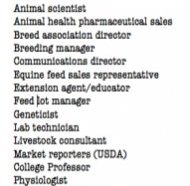
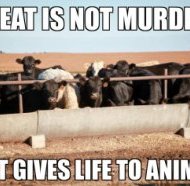

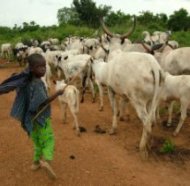
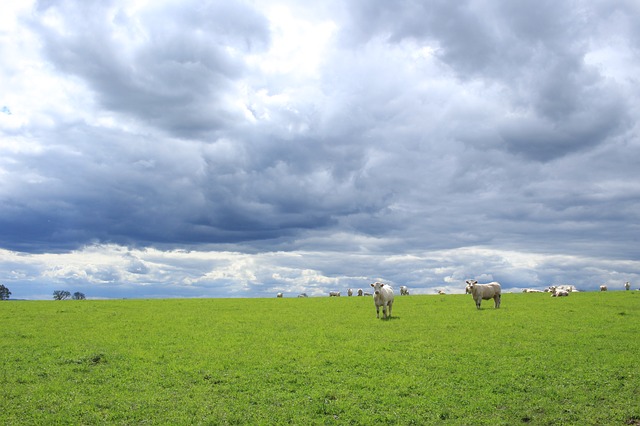
In animal husbandry, grazing is necessary for pasture. It doesn't matter what you choose sod vs seed, the ground should be well moistened. When sowing seeds of different types of plants, it is necessary to take into account the heat-loving and cold-resistant plants, the size of the seeds, the properties of the soil, the amount of water required for germination. Gardeners are often faced with the fact that sod land or its mixture with other substrates is needed to plant something. Experienced summer residents understand what this is about, but this concept is unfamiliar for beginners. (Image by Aurelou from Pixabay)
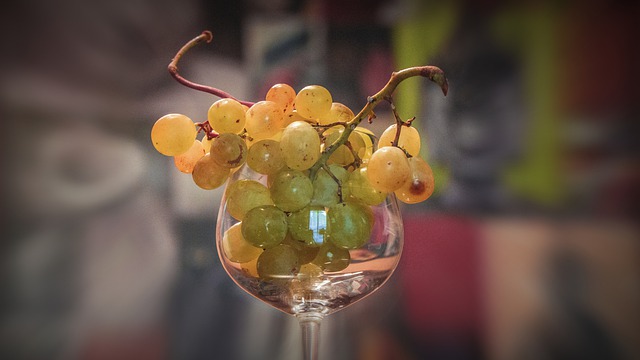
Meat is part of the culture. If you want to learn the traditions of the people, you should study the traditional cuisine. It’s amazing to find out from what meat national dishes are prepared, how they should be served and eaten, what wine or other drinks are supposed to be served. Would you like to cook traditional dishes of different nations at home? You buy meat in a supermarket, and LavoWine.Com, the best wine delivery KL, will help you with drinks. There is the widest range of alcoholic beverages, from wine and champagne to vodka and sake. You will find what you need for a themed party, a great gift, and just a delicious addition to a romantic evening. (Image by Josep Monter Martinez from Pixabay)
RELATED VIDEO
